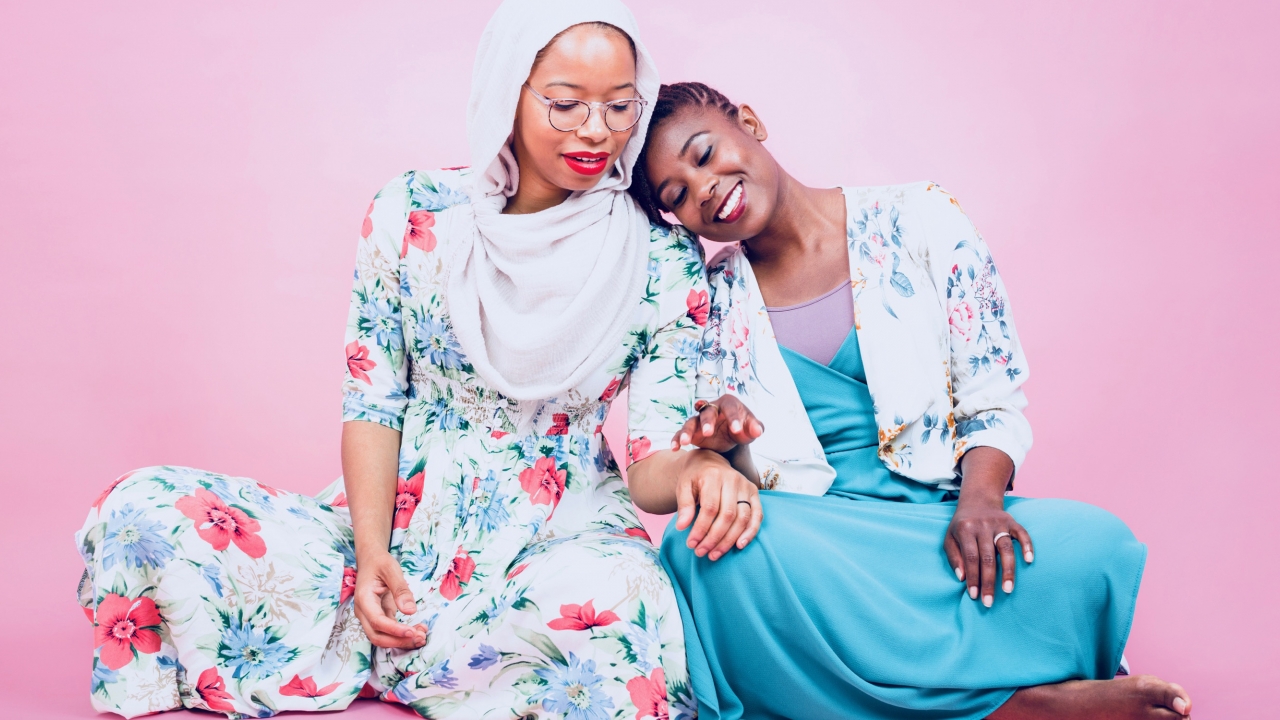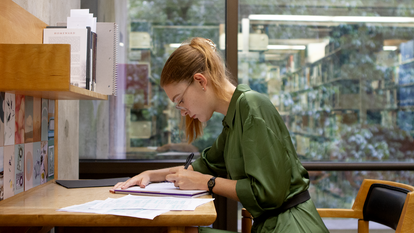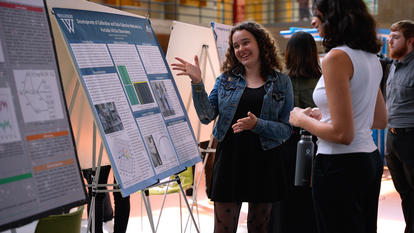Wellesley Alumnae Makkah Ali ’10 and Ikhlas Saleem ’11 Answer Questions About Their Podcast, Identity Politics, in Interview

Wellesley alumnae Makkah Ali ’10 and Ikhlas Saleem ’11 sent the Daily Shot answers to questions about the inspiration behind their podcast, Identity Politics, which focuses on race, gender, and Muslims in America. Their responses have been condensed; you can read them in full here.
Q: Identity Politics addresses diverse perspectives on race and gender in Muslim life in America. Why was it so important for you to create this podcast?
Makkah Ali and Ikhlas Saleem: Identity Politics was born out of Ikhlas’ time studying religion at Wellesley and then later at Harvard Divinity School. After graduate school, Ikhlas felt spiritually lost and began to blog about her experience as a young, black, Muslim woman in America. Ikhlas specifically wanted to focus on the spiritual and social struggles of young Muslims who don’t often see themselves reflected in media, who don’t see their stories being told.
After about a year, the blog turned into a podcast. With little to no experience in audio production, Ikhlas bought a mic and began telling her mother’s story, the story of the communities from which she came, and in the process she created a space for Muslims to exist in all our intricacies and complexities.
American Muslims are the most diverse faith group in this country. We cross every economic, gender, racial, ethnic, educational, and social boundary in the United States, yet the representation of Muslims within mainstream media remains simplistic and decidedly responsive.
Identity Politics seeks to reshape the conversation on what it means to be Muslim in America by featuring new perspectives on race, gender, and Muslim life at the intersection of multiple identities.
Q: Identity Politics is currently in its fourth season and has already garnered so much praise from various news outlets, including NPR, MTV, The Atlantic, and Wellesley Underground. Tell us about the journey you both took to make your podcast so successful. How did you meet?
Ali and Saleem: Although we grew up in Black Muslim communities just a few miles apart, we didn’t actually connect until imams in our respective communities encouraged us to find each other at Wellesley. Once on campus, we ended up joining several of the same groups, and the rest is history. One of the things Makkah said on NPR really captures how our friendship influenced the show: “Ikhlas was the first friend I had who I didn’t need to code switch with; I could just be. Once you’re in the company of someone who lets you exhale, you will never want to hold your breath again.”
In the beginning, we were focused on producing enough episodes for our binge-listeners who were new to the show. Our primary goal has always been to produce high-quality content, and once we had a good backlog of episodes we were happy with, we started identifying opportunities to highlight our work through speaking engagements and media coverage. The show is by no means an overnight success, and we still have a long way to go!
Q: How did your experiences at Wellesley inform the format and themes of the podcast?
Ali and Saleem: You know those brunches in Tower Dining Hall, where you’re sitting there for so long that people keeping coming and going, and the next thing you know it’s dinnertime? That is part of the spirit we are trying to capture on the show. It’s a place where you can gather with friends and process your journeys together. It’s a place for humor, reflection, and wonder. For us, that place and that feeling really originate in the dorms and dining halls and common rooms of Wellesley. Those conversations and memories certainly inspire the format and tone of our show.
We were both also very fortunate to come away from Wellesley with strong relationships with people who were not like us. People who came from all walks of life, who we probably would have never met had it not been for our time on that campus. The dynamic, difficult, and life-altering experiences we had with these individuals gave us a level of comfort and experience in dealing with difference that many people never have.
Our education provided us with numerous frameworks with which we could analyze the world around us and those critical thinking skills come in handy whenever we are trying to design an episode or frame a discussion.
Q: Listeners have often said that the podcast is a reflection of your personalities and friendship. Do you think Identity Politics would have the same impact if it were a news podcast?
Ali and Saleem: One of the best things about podcasting is the freedom you have—with the stories you tell and the manner in which you tell them. While podcasts and traditional journalism have lots of overlap, there is a more organic and conversational vibe that you can really lean into on podcasts that isn’t always appropriate when covering news. Part of what makes Identity Politics unique is that we are providing a space outside of the reactive, chaotic nature of the news cycle for Muslims to meet and think and speak about issues that are important to them.
It’s very possible that part of the reason why we have been so successful is that our show is a welcome pause from the news of the day, and allows our listeners to ponder openly and deeply about a broader spectrum of topics than you would typically find elsewhere.
Q: What advice can you give to current Wellesley students who are also interested in telling diverse narratives in media?
Ali and Saleem: Start with what you know and work your way out from there. In the earlier seasons of the show, many of the topics were things we had already discussed with our friends privately, and many of the guests were our actual friends. We sought for the show to reflect and highlight the diversity of the world we intimately knew in our personal lives, and that authenticity and care really showed.
Women of color are constantly being told that their lived experiences are not valuable, their labor is not actually hard work, and their knowledge does not count as true expertise. But none of these things are actually true. We have so much to offer the world and shouldn’t wait for the world’s permission to offer those things. If you find yourself filled with critiques about the media you consume, it’s very possible that you have a unique perspective that needs to be uplifted. Trust that instinct and do what you can to create the platforms that you wish existed.



